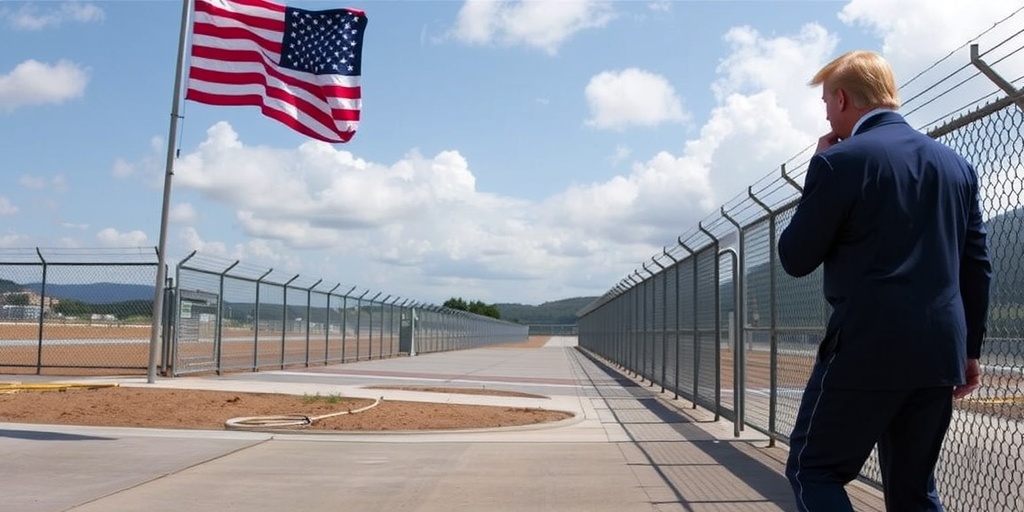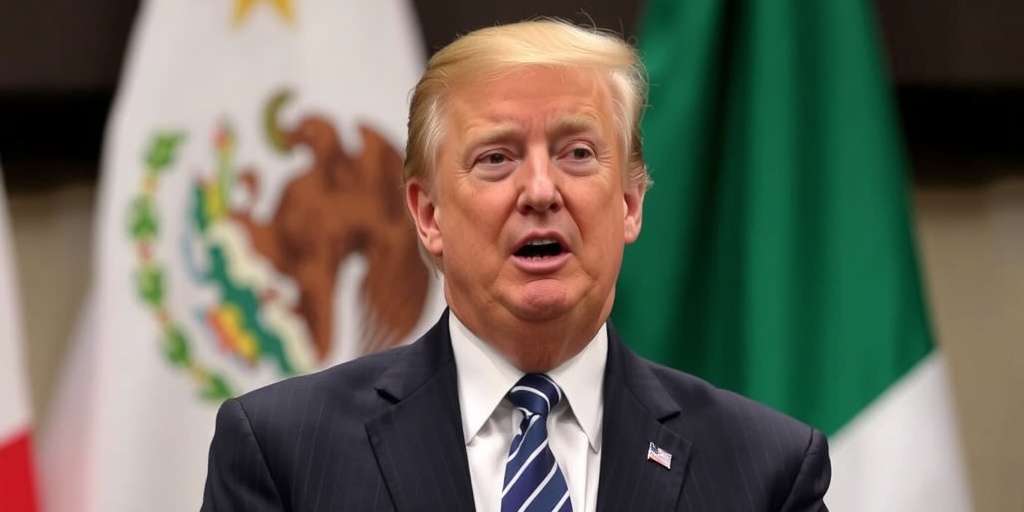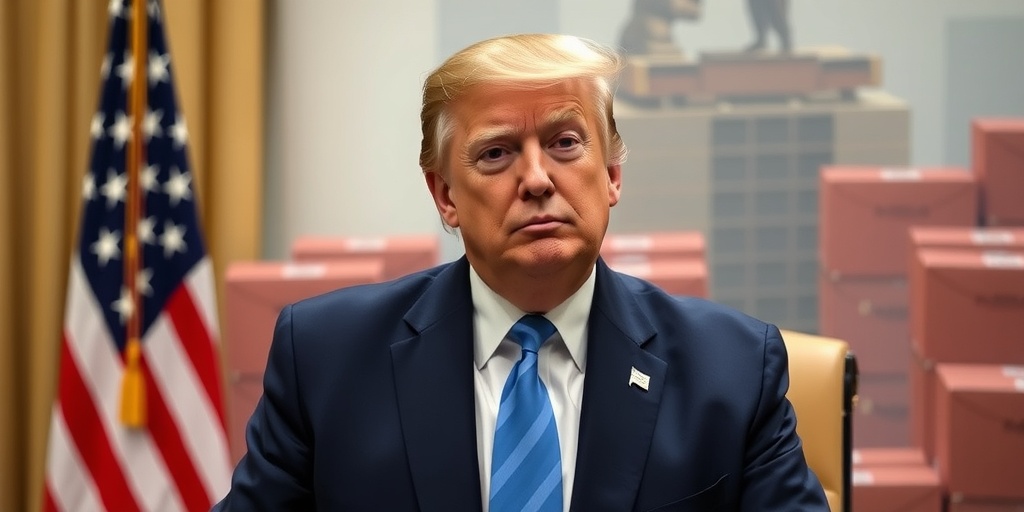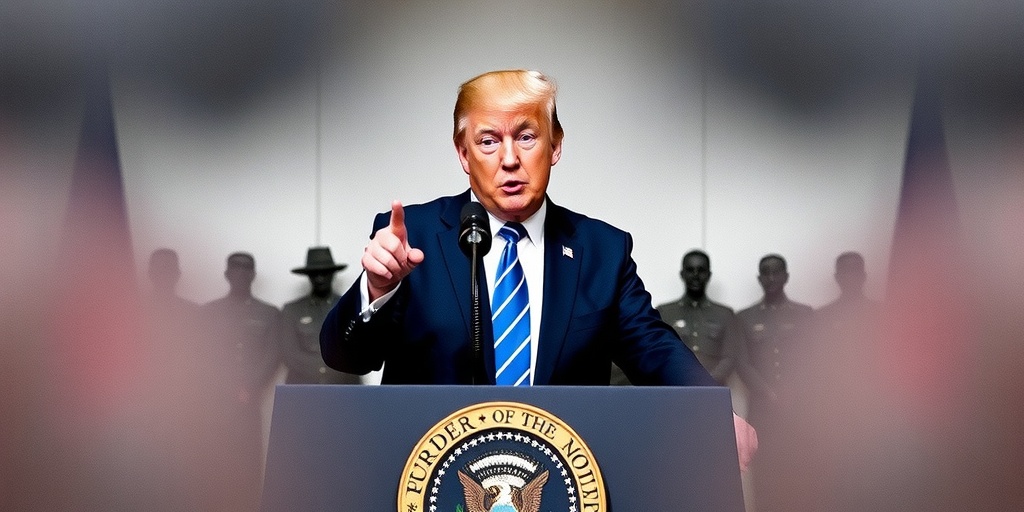Now Reading: New Lawsuit Questions Legality of Trump’s Migrant Transfers to Guantánamo
-
01
New Lawsuit Questions Legality of Trump’s Migrant Transfers to Guantánamo
New Lawsuit Questions Legality of Trump’s Migrant Transfers to Guantánamo

Lawsuit Challenges Trump Administration’s Policy of Migrant Transfers to Guantánamo Bay
In a significant legal development, the Trump administration is now facing its first direct legal challenge regarding its controversial policy of transferring migrants to the U.S. military base at Guantánamo Bay, Cuba. This lawsuit was filed on Saturday by a coalition of human rights and immigrant advocacy organizations, spearheaded by the American Civil Liberties Union (ACLU).
The plaintiffs in this case are seeking an immediate judicial intervention to halt what they describe as "cruel, unnecessary and illegal transfers to and detention at Guantánamo." In the initial filing, the coalition has specifically targeted the transfer of ten migrants whom they have committed to represent, while also laying the groundwork for a broader challenge against the transfer policy itself. This policy has raised numerous complex legal issues, prompting concerns from legal experts and advocacy groups alike.
According to the complaint, the ten migrants identified in the lawsuit have already received final removal orders and come from a range of countries, including Afghanistan, Bangladesh, Pakistan, and Venezuela. The lawsuit emphasizes that none of these individuals are affiliated with gangs, and some have been threatened with the possibility of being transferred to Guantánamo. While the government has characterized these migrants as dangerous criminals — appealing to political narratives about the "worst of the worst" — the lawsuit sharply refutes these claims, insisting that the government’s justifications lack both factual support and legal standing.
The legal team argues that the government’s authority under the Immigration and Nationality Act does not extend to transferring migrants to Guantánamo Bay, a significant assertion that challenges the overarching legality of the policy. The lawsuit also raises questions about the government’s failure to adhere to due process requirements and the Administrative Procedure Act, describing the transfers as "arbitrary and capricious."
Lee Gelernt, a prominent attorney with the ACLU and the lead lawyer for the case, expressed incredulity at the logic behind the policy, arguing that it appears illogical from both a legal and financial standpoint. He stated, “It’s not just that it’s illegal, but wholly illogical from a cost standpoint, something this administration supposedly cares about.” Gelernt pointed out the lack of clear advantages associated with transporting migrants to a remote island base, especially when they could be housed more economically on U.S. soil while awaiting deportation to their home countries.
Despite the administration’s portrayal of these migrants as criminals, many of the individuals transferred have not had criminal records. The complicated legal landscape regarding the deportation of Venezuelan migrants has drawn additional attention. The first 178 migrants sent to Guantánamo were confirmed to be Venezuelan nationals, a group particularly challenging to deport due to diplomatic tensions between the U.S. and Venezuela. Recently, however, the Trump administration has managed to negotiate with the Venezuelan government to facilitate the repatriation of its citizens.
While this lawsuit is not the first legal action targeting aspects of the Trump administration’s policy, it stands out in its potential to challenge the core legality of transferring migrants to Cuban soil. Prior to this, the courts have issued rulings preventing specific transfers, but none had directly contested the overall policy framework in place.
The recent operations at Guantánamo have raised eyebrows not only in legal circles but also among taxpayers, who may wonder why such costly measures are employed when there are less expensive alternatives available. In light of these developments, public officials and advocates are scrutinizing the implications of the policy and its adherence to existing laws.
As the situation continues to unfold, the case will be overseen by Judge Carl Nichols of the Federal District Court in Washington, D.C. Judge Nichols, a Trump appointee, was also previously assigned to oversee a separate lawsuit concerning legal access for migrants held in Guantánamo Bay. With serious implications for immigration law and detainee rights, this new lawsuit promises to challenge the administration’s approach and shed further light on its policies regarding migrant detention and deportation.
In conclusion, the ongoing legal battle concerning the transfer of migrants to Guantánamo Bay highlights urgent questions about human rights, due process, and the ethical considerations of immigration enforcement in the United States. As the judicial process develops, advocates for immigrant rights will continue to monitor the situation closely, advocating for fair treatment and legal accountability in the handling of migrants.
Stay Informed With the Latest & Most Important News
Previous Post
Next Post
-
 01New technology breakthrough has everyone talking right now
01New technology breakthrough has everyone talking right now -
 02Unbelievable life hack everyone needs to try today
02Unbelievable life hack everyone needs to try today -
 03Fascinating discovery found buried deep beneath the ocean
03Fascinating discovery found buried deep beneath the ocean -
 04Man invents genius device that solves everyday problems
04Man invents genius device that solves everyday problems -
 05Shocking discovery that changes what we know forever
05Shocking discovery that changes what we know forever -
 06Internet goes wild over celebrity’s unexpected fashion choice
06Internet goes wild over celebrity’s unexpected fashion choice -
 07Rare animal sighting stuns scientists and wildlife lovers
07Rare animal sighting stuns scientists and wildlife lovers





















